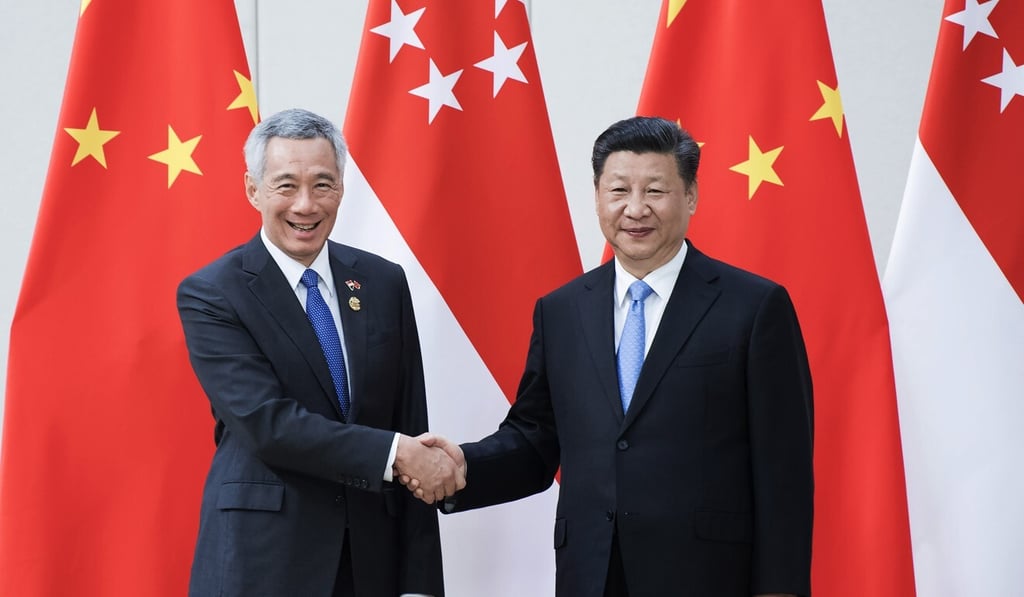Advertisement
China says Singapore ‘welcomes’ its bid to join Comprehensive and Progressive Agreement for Trans-Pacific Partnership
- A statement from the foreign ministry in Beijing says Prime Minister Lee Hsien Loong expressed support in phone conversation with President Xi Jinping
- Some CPTPP members have warned that China will have to meet the grouping’s high standards if it is to join
Reading Time:2 minutes
Why you can trust SCMP
23

China said Singapore “welcomes and supports” its bid to join the Comprehensive and Progressive Agreement for Trans-Pacific Partnership (CPTPP) following a phone call between the two nations’ leaders.
The Chinese foreign ministry said Prime Minister Lee Hsien Loong had told President Xi Jinping that the move would be “conducive to regional prosperity and development” during Friday’s conversation.
Days later Taiwan also asked to join, angering Beijing which regards the island as a breakaway province and strongly opposes its membership of international organisations.
Advertisement
Singapore, which will take over from Japan as the chair of the CPTPP commission next year, will play a key role in the approval process.
Originally known as Trans-Pacific Partnership, the deal was once promoted by the United States as an economic counterweight to China’s growing influence, but was put on hold in early 2017 after Donald Trump withdrew from the pact.
Advertisement

The revised deal – whose members are Australia, Brunei, Canada, Chile, Japan, Malaysia, Mexico, New Zealand, Peru, Singapore and Vietnam – accounts for around 13.5 per cent of the global economy. Post Brexit Britain is also keen to join and began negotiations in June.
Advertisement
Select Voice
Choose your listening speed
Get through articles 2x faster
1.25x
250 WPM
Slow
Average
Fast
1.25x